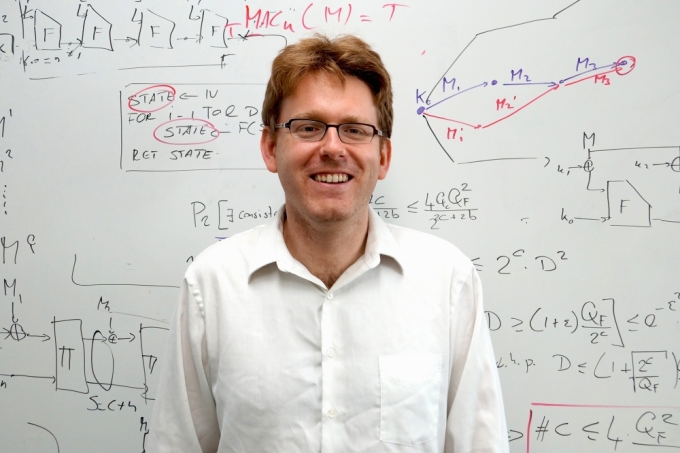Every time you send an email, make an Internet purchase or submit a digital form with personal information, encryption algorithms kick in, encoding your information so that it’s readable only to the recipient. In this way, Internet users can have a reasonable expectation of privacy and protection.
However, according to UCSB cryptographer Stefano Tessaro, for all the security conventional encryption promises, there is often little theoretical proof that the industry standard is sufficiently safe.
“Most of the designs we find are very heuristically validated,” said Tessaro, an assistant professor in Computer Science, who specializes in encryption algorithms. Once someone designs an algorithm, he said, if attempts at breaking it are unsuccessful, it is often deemed safe.
Factor in the widespread utilization of the same standard algorithm embedded in websites and computers and the potential for catastrophic security breaches grows: One successful hack can unlock a vast amount of encrypted data, from email communications to bank accounts and other private information. And hackers are only getting more sophisticated.
For his work to establish a new layer of certainty to encryption, Tessaro has received a National Science Foundation (NSF) CAREER Award.
“I’m very happy about it, of course,” Tessaro said of the recognition. “It’s a validation of your research area.”
Using principles from theoretical computer science, applied mathematics and information theory, Tessaro and his team aim to develop a foundation from which demonstrably more secure encryption algorithms may emerge. Their focus will be on symmetric algorithms, a commonly used type of encryption that relies on both parties having a key to encode and decode communications between them.

